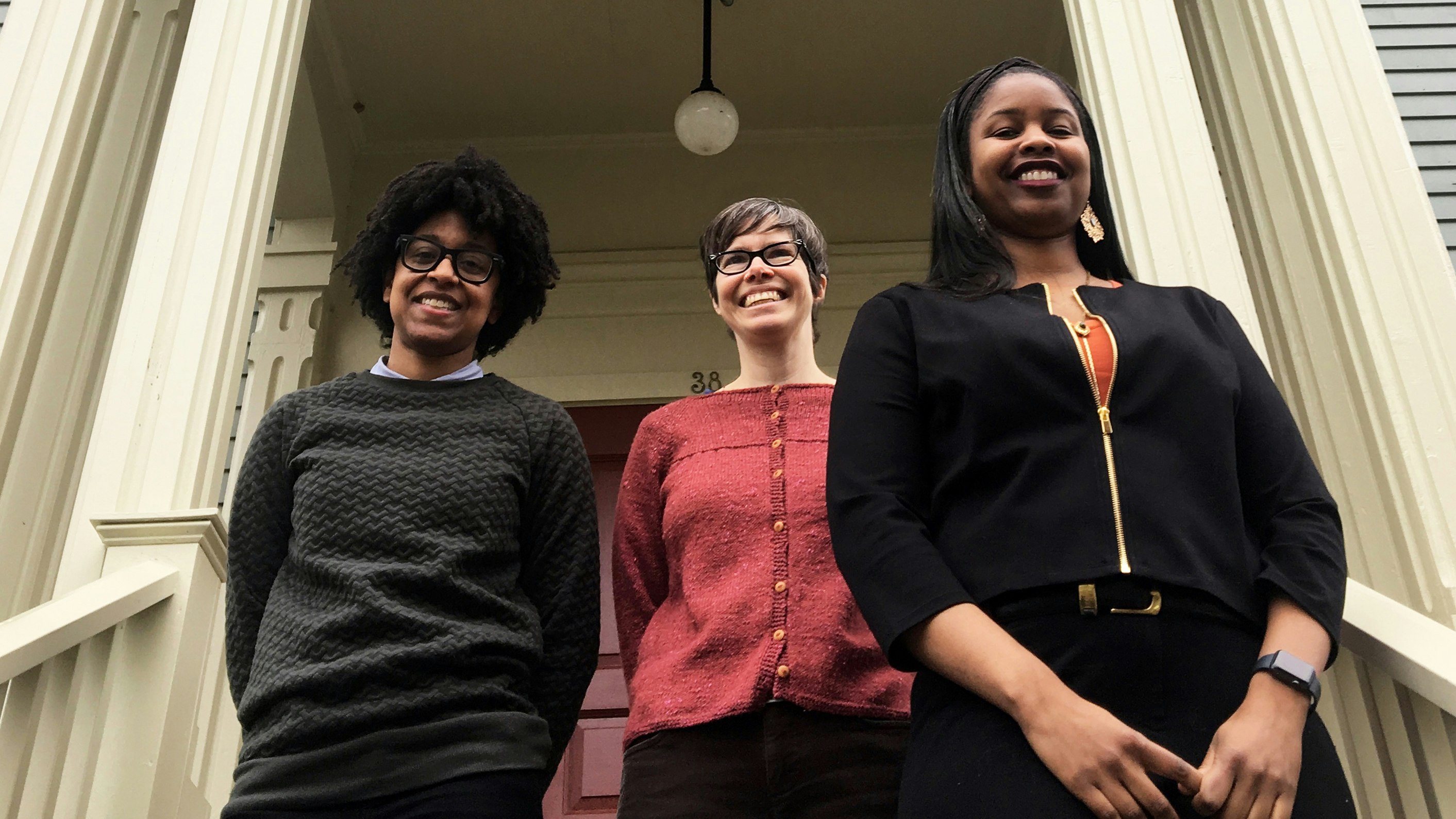Unpacking Angela Davis

The papers of activist and scholar Angela Y. Davis arrived at the Schlesinger Library in January 2018.
Since then, I’ve worked on a team with two other archivists to process the material, mindful of the Library’s plans to mount an exhibition on Davis and to host a conference about her work in October of this year. With the project now wrapping up, the collection should be open to research to coincide with these events.
Archivists preserve and provide context for primary source material, establishing both physical and intellectual control for the rich collections held by the Schlesinger. Our job is to research, analyze, and describe content, identify important topics or people within collections, put material in historical perspective, and document how it relates to other collections at the library.
Processing of the Davis papers began at Davis’s house, in Oakland, California, when archivists Jehan Sinclair and Amber Moore accompanied curator Kenvi Phillips to pack the material in late December 2017. Sinclair and Moore packed items in numbered cartons, listing the contents and noting important details. Material that had been stored in Davis’s basement was marked as such on the cartons, providing key contextual information for the unpacking process.
When the 150 cartons arrived at the Schlesinger, we were able to sort material quickly and see what parts of the collection needed the most work. Much of the material from the last 25 years was well organized and easy to process. Older material needed more preservation work and also more research to determine its history. Under the direction of conservator Amanda Hegarty, we used a HEPA vacuum to clean—one page at a time—six cartons of material that had gotten dirty from 40 years in Davis’s basement. Many of these items were from the 1970s: files from Davis’s teaching and speeches, as well as pamphlets, posters, and documents from worldwide freedom struggles, mainly in southern Africa.
One carton of material included letters sent to Davis when she was jailed in 1971–1972 on charges of which she was later acquitted. These letters, undelivered at the time, were found years later by the daughter of then–Marin County Sheriff Harvey Teague.
Many of the letters and postcards sent to Davis were from children in East Germany and other communist countries, including, as Hegarty and Sinclair discovered on a visit to the Weissman Preservation Center, future photograph conservator Elena Bulat. The Davis materials also include textiles created by these children—bed sheets with marker drawings, or with other fabrics or paper pinned on, delivering the message “Free Angela!” Schlesinger archivists have connected with staff members at the Stanford University Library, which holds more material from the global “Free Angela!” campaign in the records of the National United Committee to Free Angela Davis. We hope to be able to link material from the two collections in the future.
The collection also contains 258 audiovisual items, primarily capturing Davis’s appearances and speeches. These holdings present special challenges: repeated play can damage older material, and tape-based media can deteriorate quickly. To better facilitate user requests, which are fulfilled by on-demand digitization, Schlesinger archivists describe the content of each media item. The process of listening and watching, while time consuming, promises users item-level information about each tape, which in some cases may be the only remaining copy of a Davis speech.
Davis’s papers show the evolution of her philosophies and visions around black feminism, prison abolition, and social and political change. They include early drafts of her books; letters with colleagues, family members, and fans; extensive documentation of her 1972 trial and its international reach; notes from the founding conference of the prison abolition organization Critical Resistance; printed material from anti-imperialist struggles around the globe; and letters and writings from imprisoned women and men. Historians, activists, artists, and others will find the collection an extraordinary resource.







